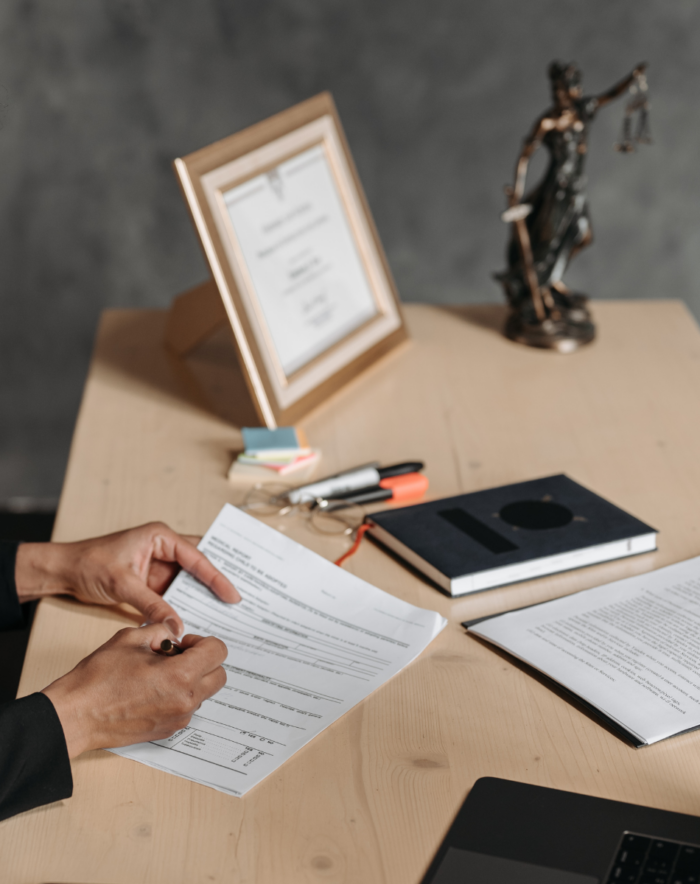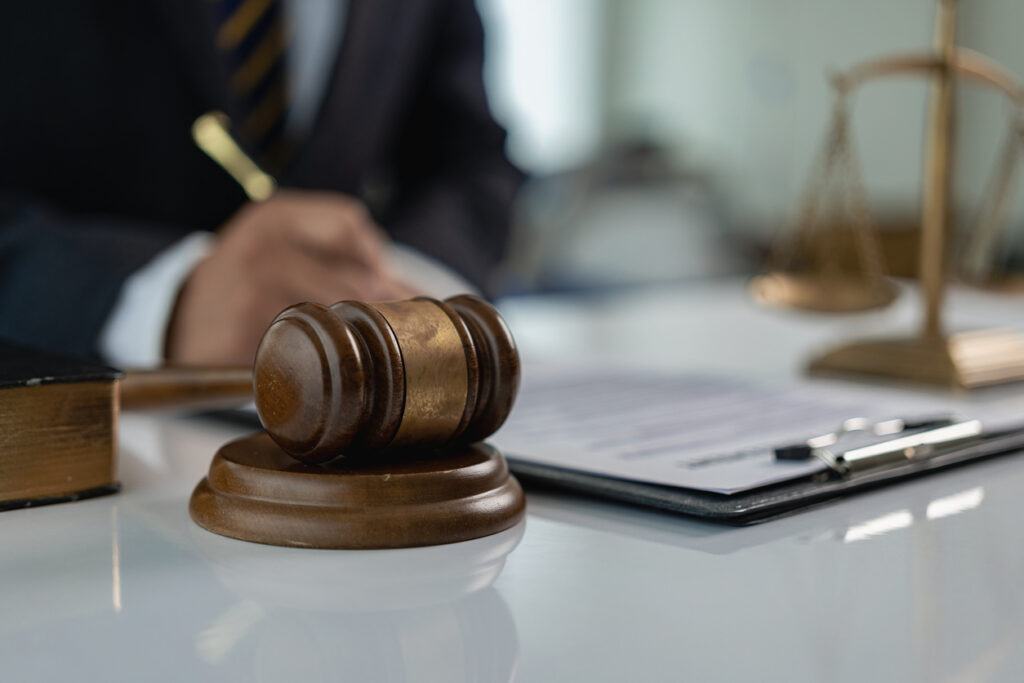
Trusts are intentionally designed for privacy, making them more difficult to locate than other estate planning documents. Unlike wills, trusts typically bypass probate and are not part of the public record. As a result, if a trust appears to be missing or lost, you may need to take steps to track it down.
Navigating the process of how to find a trust can be complex, especially while coping with the loss of a loved one. However, locating trust documents is essential — not only to ensure that beneficiaries receive their rightful inheritances but also to uphold the decedent’s final intentions. If a decedent had created a trust, chances are they desired for their assets to bypass the probate process, which can be long, drawn out and costly.
If you suspect you were named as a trust beneficiary or successor trustee, it generally would be worthwhile to take the time to explore strategies that could help you in your trust search. In this article, we’ll guide you through the best approaches for finding a trust, as well as what happens to assets if trust documents cannot be found.
Are Trusts Public Record
Unlike wills, trusts are generally not part of the public record. This means you likely won’t be able to look up a decedent’s trust at the courthouse the way you could a will.
Because trust administration only requires the successor trustee and the trust instrument, there’s no need to file the trust with the court. By contrast, estate administration cannot begin until the court formally appoints an executor at the initial probate proceeding, making wills — and the estates they govern — public record.
That said, certain circumstances may cause a trust to become part of the public record, though this is not always guaranteed.
For example, if a trust holds real estate, the property deeds transferring title into the trustee’s name may have been recorded with the county clerk. While this wouldn’t make the trust instrument itself public, property records could confirm the trust’s existence.
Similarly, if a trust is a testamentary trust (i.e., it was created through the terms of a will), it would be part of the public record. This is because the will used to establish the trust must go through probate, making details such as the trustee’s nomination, trust beneficiaries and trust assets accessible to the public.
Lastly, if a trust becomes the subject of litigation — such as a property dispute (e.g., an 850 petition) or claim — it could become part of the public record. However, by that point, the trust’s existence would already be known, making this scenario less relevant for those looking to find a trust.

How Is Locating a Trust Different From Locating a Will?
Locating a trust after its creator’s death can be significantly more challenging than locating a will, but to understand why, you must first examine how trusts and wills operate.
How a trust works after death is similar to how an estate works after death, with one key difference: trusts generally aren’t subject to probate.
A trust’s ability to bypass probate can expedite the distribution process and help beneficiaries receive larger inheritances by avoiding costly probate fees. However, if no clear instructions were left behind surrounding the trust, its ability to bypass probate may actually be a disadvantage, since locating the trust could prove difficult.
Unlike wills, trusts don’t require witnesses or notarization, which means there may not be anyone available to confirm or deny their existence.
Whereas a copy of a trust will generally suffice for administration, the same isn’t true for wills. For a will to be valid, its original version must be lodged with the court.
How to Find a Trust: 5 Places to Look
There are many reasons why locating a decedent’s trust could prove challenging.
Perhaps the estate planning attorney who was in possession of the trust document has retired or passed away.
Perhaps the decedent simply forgot where they had kept it.
Perhaps it’s locked inside a safety deposit box that no one is authorized to access.
Despite these obstacles, if you’re confident a trust exists, it’s generally worth the effort to find it. In fact, if the decedent informed you that you are the successor trustee, it may even be your duty.
A successor trustee who knowingly withholds information about a trust, fails to disclose its existence, or neglects to locate it despite knowing it exists could face fiduciary misconduct allegations.
That said, if you have any of the following information, your trust search may prove to be easier than expected:
- The name of the trust
- The city or county where the trust (or the majority of its assets) are located
- Documents — such as property deeds — referencing the trust
- Contact information for individuals who may know its whereabouts
Consider taking the following steps to locate a trust.
1. Check with the Successor Trustee
Since the trustee was personally appointed by the settlor to manage the trust after their incapacity or passing, it’s likely the decedent discussed their appointment with them beforehand. As a result, whomever you believe to be the successor trustee is often the best person to consult in your search for a trust.
The successor trustee could be a third-party professional fiduciary, the decedent’s surviving spouse, a close relative or even a trusted friend.
2. Check with the Decedent’s Estate Planning Attorney or Financial Adviser
It used to be common for an estate planning attorney or financial adviser to assist in creating a trust. However, with the rise of estate planning software, many people opt to now draft their own trusts — a trend that can make locating a decedent’s trust even more challenging.
That said, if a decedent worked with an estate planning attorney or financial adviser to draft their trust, they may be able to confirm whether the trust exists and may even know where to find it — if they don’t have a copy themselves.
3. Check with Close Relations of the Decedent
If neither the trustee nor any professionals involved in the creation of the trust can provide information about its existence or location, it may be worthwhile to check with the decedent’s close family members and friends — such as their surviving spouse, children and siblings. They might know how to find the trust or even have a copy themselves.
Even if they don’t have the trust documents, they may be able to direct you to a safe, safety deposit box or other secure location where the trust may be stored. They may also have knowledge of the decedent’s estate planning attorney or financial adviser.
While it’s uncommon for decedents to leave their trust documents with beneficiaries — since beneficiaries may be incentivized to tamper with or “misplace” the trust in hopes of securing a larger inheritance under a prior version of the instrument or through intestate succession — it’s not unheard of. This is particularly true if a beneficiary is also the trustee.
4. Check the Decedent's Safe or Safety Deposit Box
After creating their trust, the settlor may have stored the document in a safety deposit box at their bank or in a personal safe at their home or office.
Whether you can access a decedent’s safety deposit box depends on who owns it. Many people share joint ownership of their safety deposit box with a spouse — in which case the spouse may already have a key and full access.
If the box was solely owned by the decedent, access will generally still be possible, but only by the executor or administrator of the decedent’s estate. They will need to present proof of identity and a certified copy of the decedent’s death certificate to the bank.
Ideally, you’ll find a key to the safety deposit box — otherwise, the bank may charge hundreds of dollars to unlock it.
If the safety deposit box is in the name of the trust, the decedent may have provided the bank with a copy of the trust instrument. In this case, the successor trustee should have no trouble accessing the box by presenting proof of identity and a certified copy of the decedent’s death certificate.
Accessing a home or office safe can be more complicated — unless the decedent previously shared the combination or provided a key. If no access information is available, you may need to contact the manufacturer of the safe or a locksmith to determine your options for opening it.
5. Check the Decedent’s Home, Office and Car
While most settlors take care to store their trust documents in a secure and private location, some may leave them in a more accessible place — such as a filing cabinet, desk drawer or even their car.
When searching for the trust, be thorough, checking every possible location, even if it means going through every room in the decedent’s home.
If you’ve exhausted all efforts and still are unable to locate the trust, consulting an attorney may be a wise next step. However, if the trust remains unfound, it’s possible the decedent never created one, intentionally revoked the trust or simply lost track of it.

What Happens if a Trust Cannot Be Found?
If a trust cannot be located, any assets that were believed to be in the trust will be regarded as being part of the decedent’s estate. These assets will then be distributed according to the terms of the decedent’s will (if valid) or intestate succession laws (if no valid will exists). However, before any distributions can be made, the assets must first go through probate.
This scenario may not be ideal — especially if you are certain the decedent had created a trust. If they had, it’s likely they intended to avoid probate to preserve more of their assets for their beneficiaries. They may have also named different beneficiaries in their trust than in their will or provided specific instructions on how the assets should be distributed, such as staggered payments over time — something a will usually is unable to accommodate.
For these reasons, if you believe a trust exists, it’s worth taking the time to explore how to find it.
FAQs: How to Find Trust Documents
If you still have questions or concerns around how to find out if a trust exists, explore the frequently asked questions below for more clarity.
Keep in mind that our probate attorneys are always available to provide personalized guidance if you need it.
Who has a right to copies of the trust?
Once a trust becomes irrevocable due to the settlor’s death or incapacity, beneficiaries named in the trust and the decedent’s heirs have the right to request a copy of the trust terms.
How can I get a copy of a trust document?
If you are an interested party, you have the right to request a copy of the trust from the trustee, who is legally required to comply with your request.
If you’ve been waiting an extended period and have still not received a copy of the trust, you may need to seek assistance from a probate attorney to compel the trustee to provide the requested document.
Sometimes, trustees include a copy of the trust with the notification they provide interested parties at the start of trust administration.
How can I find trust documents online?
It generally isn’t possible to find trust documents online, since trusts are not recorded with the court and bypass probate. Remember, trusts tend to be private instruments.
To find trust documents, we recommend following the steps we discussed in this guide or consulting with a probate attorney.
How do I find a lost trust?
If you’ve lost track of a trust you previously created, reviewing your records may help you determine whether you worked with an estate planning attorney or financial adviser, as they may have a copy. Look for payments made by check or any correspondence — via email or traditional mail — that could provide a lead.
Unfortunately, a missing trust could also indicate that someone is intentionally hiding it. If you suspect this, consider who might benefit from the trust being “lost.” Unless you can identify that person — or unless your estate planning attorney or financial adviser has a copy — there may be little recourse.
It’s also possible that you intentionally revoked the trust, opting instead to distribute your assets through other means, such as a will, intestate succession, beneficiary designations or property deeds.
Can I make a lawyer hand over a trust if he says “client privilege”?
If the settlor of the trust is alive and has not authorized disclosure, then the settlor’s attorney has no obligation to provide beneficiaries or heirs with a copy of the trust.
However, once the settlor is incapacitated or has passed away, beneficiaries and heirs are typically entitled to a copy of the trust upon request from the named successor trustee, but not from the attorney.
What happens if a trust is locked in a bank safe-deposit box I can’t open?
If a trust is locked in a bank safe deposit box, you generally need legal authorization to open it. Typically, the executor or trustee holds this authority, or an attorney can assist in obtaining a court order to gain access.
The successor trustee ghosted us. Can we sue to see the trust?
Yes, if you are an heir or beneficiary and a successor trustee is not responding to your requests for a copy of the trust, you can file a petition to compel them to provide it. Typically, we are able to get the trustee to comply through a simple letter citing the law, avoiding the need for our clients to involve the time and expense of the court process.
Can I search every county in California at once?
It is generally not worthwhile to search every county’s online database for a copy of a trust, as trusts are private legal documents that are typically not filed with the court or made publicly accessible.
If you are a beneficiary or heir, you have the right to request a copy from the trustee; otherwise, the trust remains private.
What happens if a parent signed a trust in another state?
If a parent signs a trust in another state, it is generally still valid in their home state thanks to the Full Faith and Credit Clause of the U.S. Constitution, which recognizes legal documents — including trusts — across state lines.
That said, each state has its own trust laws, so it’s important to work with an experienced attorney to determine which state’s laws apply to the trust and to ensure compliance and proper administration.
Can a bank give me a trust without a court order?
If a bank has possession of a decedent’s private documents, such as a trust, they are generally not permitted to provide those documents to third parties unless that third party presents authority that they succeed to the decedent’s property interests (e.g., that they have been appointed as executor or administrator of the decedent’s estate, or that they are the acting successor trustee of the decedent’s trust).
Will a CPA hand over a trust?
No, CPAs have a professional responsibility to maintain client confidentiality, so they will not simply hand over another person’s trust.
What happens if a trustee says they lost the trust?
If a trustee claims to have lost the trust, you may need to take legal action for mismanagement. At the same time, it’s important to determine whether another copy of the trust exists and who might have it. A good place to start is by checking with the decedent’s estate planner, accountant, spouse and other family or friends.
Can a child see a trust before their parent dies?
Yes, a parent is free to show their trust to their child — or anyone else — before they die. In fact, many people nearing the end of life share their estate plans with family members to clarify their intentions and help prevent disputes later. However, in most cases, if the parent is the settlor of the trust and is competent, they have no obligation to share the trust terms with their children.
Still have questions on how to find a trust?
If you have questions about a loved one’s trust, the probate attorneys at Keystone are here to assist you. Since 2014, we’ve been helping clients navigate complex trust and will matters to achieve favorable outcomes.
Contact us today to discover how we can help and work toward a solution that meets your needs.










